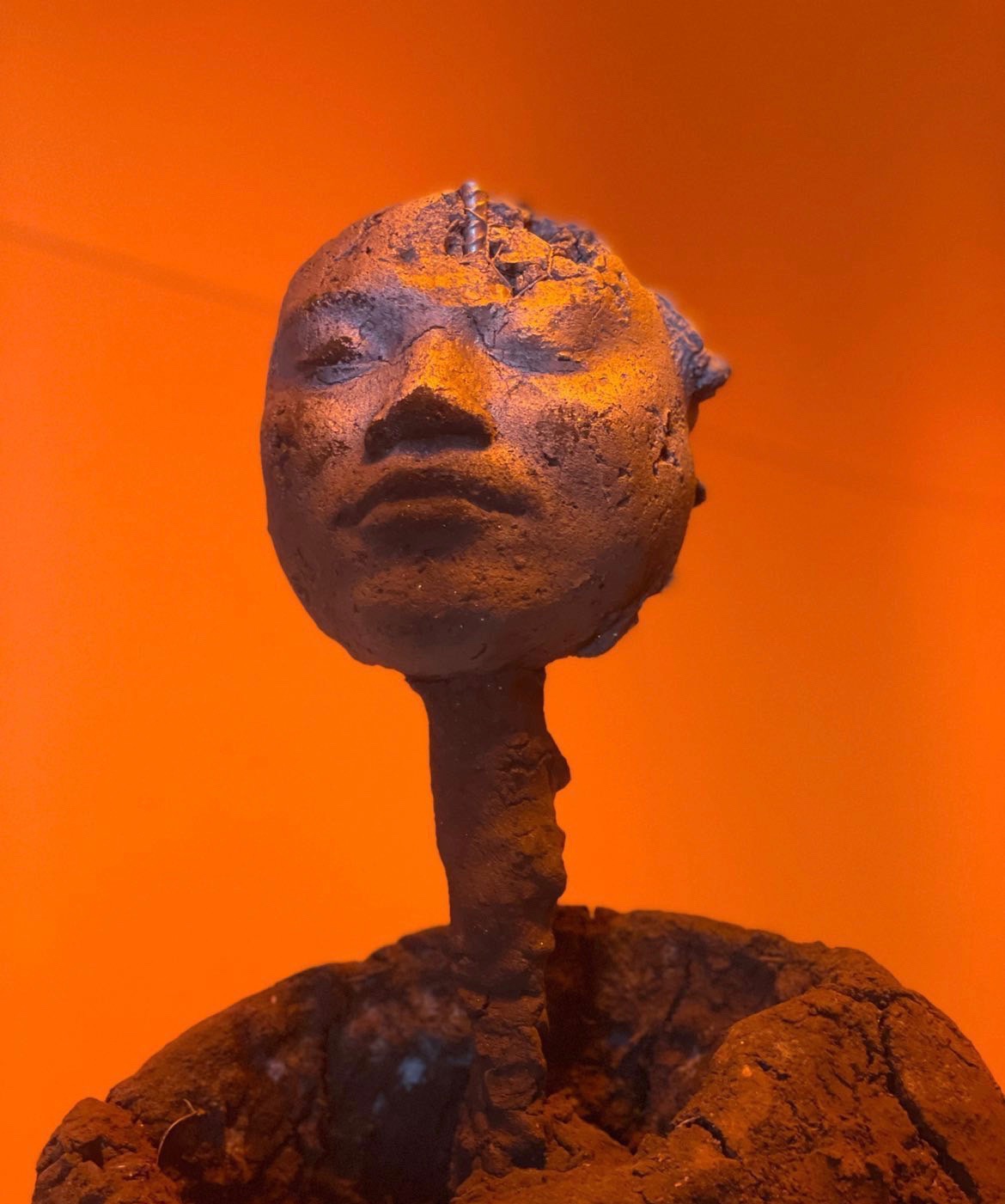As my feet touch the terrain of compact, glittering soil that covers the floor of the Hammer Projects space, it feels as if I’m stepping into another realm, another planet even. Kiyan Williams’ solo exhibition, “Between Starshine and Clay,” curated by Erin Christovale, presents a new kind of land art–a sort of archeology of ruins. The artist began collecting earth from ancestral sites in an effort to piece together their own familial heritage. Williams understands soil as vibrant organic material that harbors collective meaning related to Black American histories and identity. Attuned to the spiritual and metamorphic qualities of land and soil, Williams’ practice is echoed in Katherine McKittrick’s claim that “black matters are spatial matters.” In mapping a kind of Black geography that considers diasporic histories and subjects often regarded as “ungeographic”, McKittrick emphasizes the “spatial practices Black women employ across and beyond domination and the ways in which geography, although seemingly static, is an alterable terrain.”
Under the dome of the gallery, a constellation of geological debris and cosmic matter is suspended in a moment of transformation, levitating in a state of simultaneous expansion and explosion; bits of sandstone from the facade of the U.S. Capital constructed by slave labor float alongside pieces of ancestral earth creating a sedimental vortex of Black life. Fragments of the artist’s face and hands are imprinted in the soil as if to suggest their own transformation embedded in the material traces of the “ruined” body. A human figure emerges from the dirt as if springing from the roots of the constellation. An audio recording of Lucille Clifton’s 1993 poem “won’t you celebrate with me” reverberates throughout the gallery, energizing the surrounding materials and bodies. Like Clifton, Williams honors past and present networks of kinship that live in the soil and the stars.
Considering the ways in which humans and nature intersect, Williams presents a new kind of land art grounded in Queer-Black ecofeminism, and land monuments that are not emblems of totality and domination but rather totems of transformation and regeneration.
Hammer Museum
10899 Wilshire Blvd
Los Angeles, CA 90024
On view through August 28, 2022


